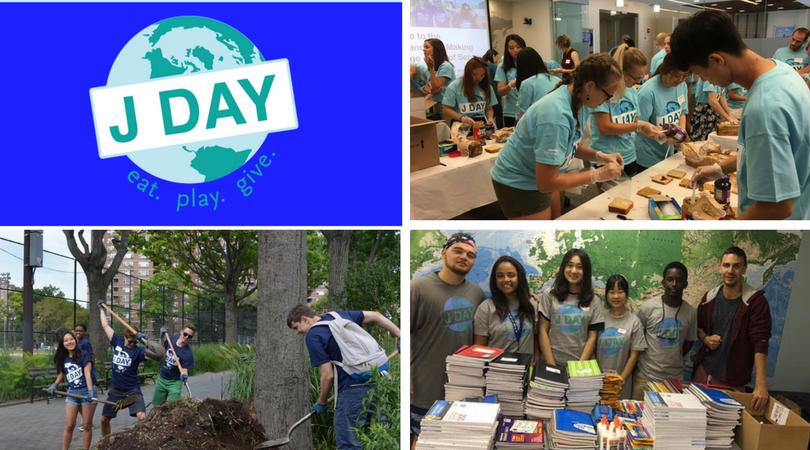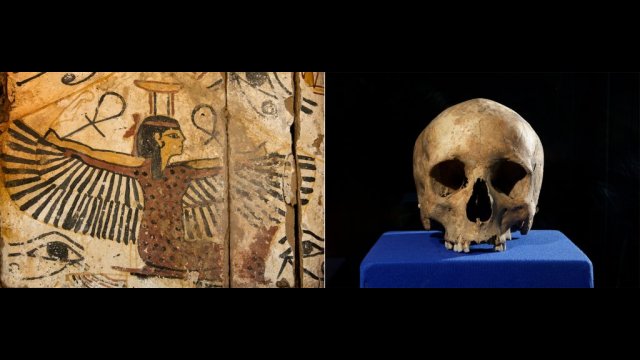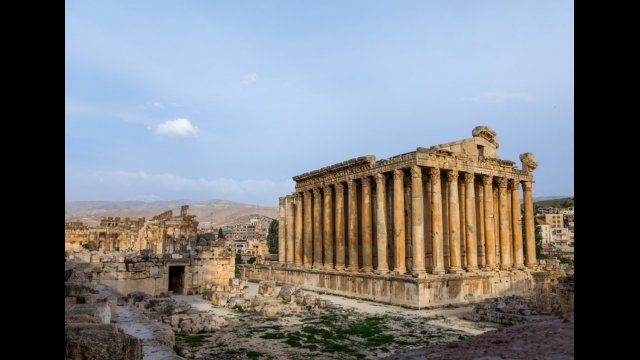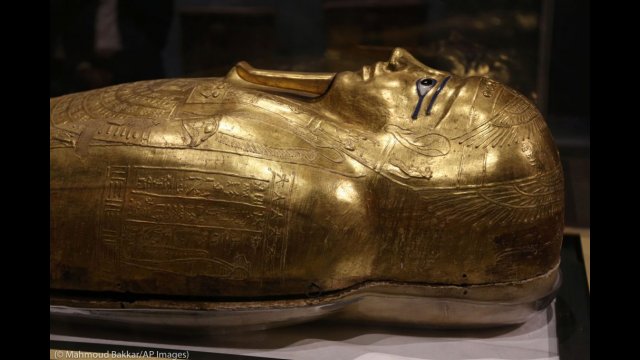https://share.america.gov/sharing-ideas-on-black-market-antiquities-trade/
In the Middle East, an age-old problem has resurfaced. Thieves are taking advantage of any chaos caused by recent conflict to loot historical treasures.
But archaeologists, museum curators and conservators, customs and border agents, and auction houses all play roles in stopping the looting and trafficking of cultural antiquities.
Antiquities protectors from across the region came to the United States recently to hear how their American counterparts fight smugglers. They traveled the country on a State Department–arranged visit to meet with academics and experts from the Smithsonian Institution and other top museums.
Perhaps most beneficial of all, several visitors said, was that they met each other for the first time and shared notes on stopping the black-market trade and repatriating treasures. “It’s a great chance for me to [hear] about their problems, especially in the countries suffering from wars and conflicts,” said Essam Shihab of the Egyptian Ministry of Antiquities, whose duties include research in Luxor, the city on the Nile River in southern Egypt that surrounds ancient monuments of Egyptian pharaohs.
Experts from nine countries — Algeria, Bahrain, Egypt, Israel, Lebanon, Libya, Morocco, Tunisia and the United Arab Emirates — and the Palestinian territories participated in the three-week program.
They met with officials from State Department’s Cultural Antiquities Task Force and Homeland Security Investigations who work on keeping looted objects out of the U.S. and protecting cultural heritage. They heard about enforcement mechanisms, including U.S. laws restricting imports from Iraq or Syria. An executive from the Sotheby’s auction company spoke about its safeguards.
They toured the Smithsonian Institution in Washington, the Metropolitan Museum in New York and other cultural repositories to hear how curators document the provenance of their collections and see how they display treasures.
And they learned from one another. “It’s nice to hear others have the same problems and that it’s not only yours,” said Amir Ganor of the Robbery Prevention Division of the Israel Antiquities Authority. “We can learn new methods, new tactics, from each other.”
Thieves may hang on to their loot for years before bringing it to market. Hind Younes of the Lebanese Ministry of Culture’s Directorate of Antiquities said some objects stolen during Lebanon’s civil war were not marketed for a decade or longer.
Shaban Abdel Gawad, a supervisor in the Repatriation Department of Egypt’s Ministry of Antiquities, said more than 500 objects were recovered last year. “We’re following all the auction houses in the whole world,” he said. “We also have friends everywhere to tell us if we didn’t see it ourselves.”
Brian Daniels, research director for the University of Pennsylvania Museum, stressed the importance of such networking. “The effort to protect cultural heritage and stop the theft of antiquities has to be through broad partnerships. Think international organizations, ministries of culture, and the local communities on the ground,” he said.
He told fellow archaeologists they must be the strongest advocates: “If it’s not us, it really isn’t going to be anyone.”
The antiquities experts were in the United States as part of the International Visitor Leadership Program.
About the Cultural Antiquities Task Force
Homeland Security Investigations is a member of the Cultural Antiquities Task Force (CATF). Created by the State Department in 2004 at the direction of Congress, the CATF comprises federal agencies that share a common mission to combat antiquities trafficking in the United States and abroad. Since its creation, the CATF has supported more than 95 domestic and international cultural property training programs. CATF is managed by the State Department’s Cultural Heritage Center.







